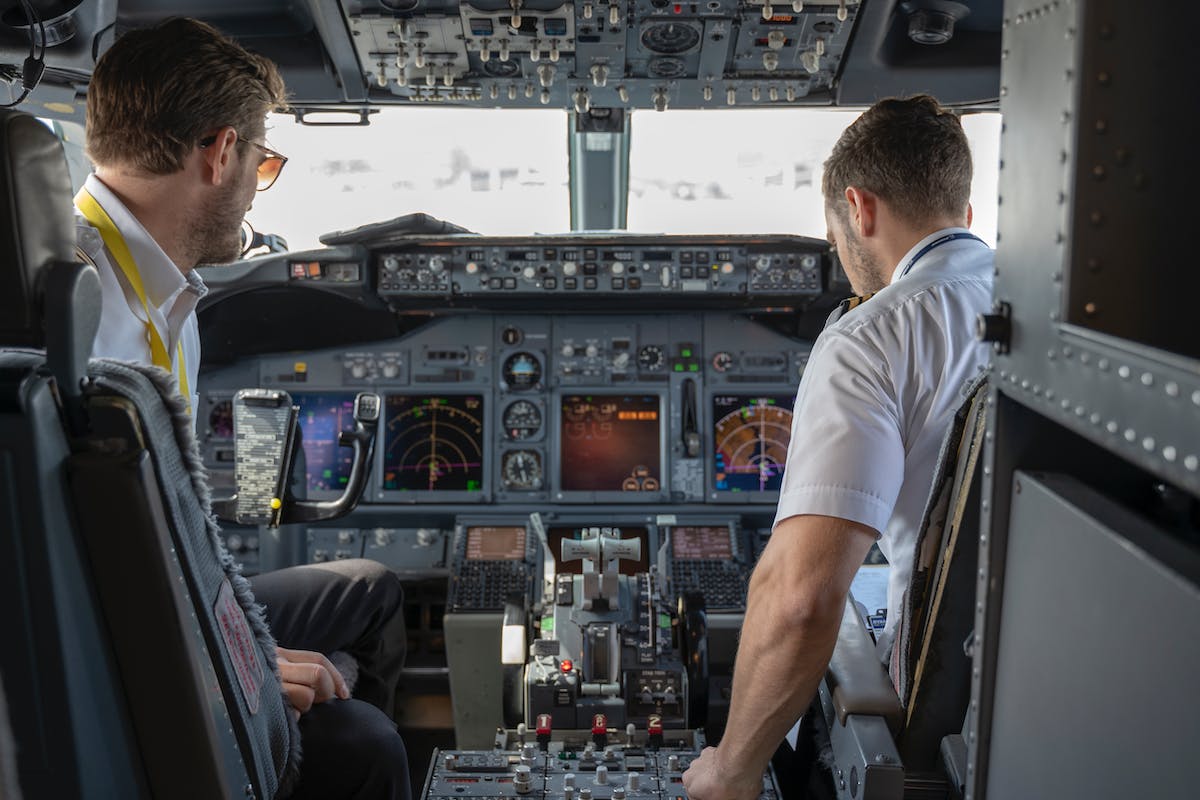- Pursuing a pilot career involves comprehensive education, from high school to flight school, developing essential skills.
- Earning specific pilot certifications, like PPL, IR and CPL, validates your flying abilities and provides flying privileges.
- Effective job application includes a well-curated resume, interview preparedness, maintaining a clean record, and professional networking.
- Success in this career path requires hard work, patience, dedication, and a passion for flying.
Becoming an airplane pilot, for many, is more than just a career choice – it’s a dream that is often born in childhood and nurtured throughout life. The allure of the skies, combined with the thrill and responsibility of controlling a massive machine, makes this a powerful aspiration. In addition, pilots enjoy traveling around the world, experiencing new cultures, and taking in the breathtaking views from the cockpit that few others have the privilege of witnessing.
According to the U.S. Bureau of Labor Statistics, the number of employed pilots is expected to grow 13% from 2020 to 2030. This growth rate outpaces the average for all other occupations, signifying the continued appeal of this dream. Furthermore, a Boeing report predicts North America will require 208,000 new pilots over the next 20 years to keep up with the demand. This shows a strong future demand for pilots, adding another layer of attraction to this dream career.
However, starting your dreams of becoming a pilot can be daunting, especially with the extensive training and education required. The first step in any journey is understanding where you are now and where you want to go. Here are a few key points to keep in mind as you build up to fly:
Education
Education forms the bedrock of a solid and successful aviation career. In addition to providing the technical knowledge necessary for flying, education cultivates a mindset of systematic thinking, problem-solving, and decision-making—all critical skills in the cockpit. It also infuses a deep understanding of regulations, safety protocols, and other aviation-related aspects. Further, having a solid educational background can significantly increase your employability in the competitive aviation industry.
Earning a High School Diploma or Equivalent
Becoming a pilot often starts with completing high school or its equivalent. High school courses in mathematics, physics, and English are especially beneficial as they lay the groundwork for understanding the principles of flight, navigation, and communication, respectively. It’s advantageous to excel in these subjects to ensure a robust foundation for future aviation studies.
Pursuing a Bachelor’s Degree
While not a strict requirement for all airlines, many prefer pilots with a bachelor’s degree. Degrees in aviation, aeronautical engineering, or similar fields will likely provide an edge, but non-aviation degrees can also be acceptable. Higher education helps develop critical thinking, problem-solving skills, and a broader understanding of the world—all valid for pilots.
Attending a Flight School
Attending a reputable flight school is a critical step where you’ll receive specific training on flying aircraft. In addition to ground school, where you learn aviation theory, flight school involves actual flight training. There will typically be several levels of training, starting with beginner and leading up to being ready for commercial flights.
Certifications
Securing the appropriate certifications is a crucial aspect of your journey to becoming a pilot. These licenses validate your flying skills, knowledge, and experience, allowing you to operate aircraft legally. Additionally, different pilot certifications unlock various levels of flying privileges, from flying single-engine aircraft for leisure to piloting large commercial jets. Here are some key certificates you’ll need to earn on your path to becoming a pilot:
Private Pilot License (PPL)
The Private Pilot License (PPL) is the first significant certification you’ll need to earn. This license allows you to fly single-engine aircraft for non-commercial purposes. To obtain a PPL, you’ll need to complete a minimum number of flight hours and pass both a written and practical test.
Instrument Rating (IR)
After obtaining your PPL, the next step is to earn your Instrument Rating. This certification permits pilots to fly under instrument flight rules (IFR). You can navigate and control the aircraft by referencing the cockpit’s instruments, an essential skill for flying in poor visibility or inclement weather.
Commercial Pilot License (CPL)
The Commercial Pilot License allows you to get paid for your flying services. This certification involves additional flight training hours, advanced maneuvers, and a more rigorous examination process. With a CPL, you can be hired by airlines, charter services, or scenic tour companies.
Application
Achieving your pilot dreams becomes a realistic goal once you start the job application process. The application stage is essentially where the proverbial rubber meets the road. It is when your education, training, and certifications are tested in a real-world scenario. You’ll have the opportunity to demonstrate your potential value to the airline or aviation company, highlighting not just your technical proficiency but also your communication skills, decision-making ability, and leadership potential. Remember, airlines don’t just hire pilots—they’re looking for ambassadors who will represent their brand in every interaction.
When preparing for the application process, there are several factors to consider:
- Curate Your Resume: Ensure your resume is clear, concise, and showcases your knowledge and experience effectively. Highlight significant achievements in your education or training, emphasizing your certifications and flight hours.
- Hone Your Interview Skills: Interviews are not just about answering questions—they’re also an opportunity to show your personality and how you handle pressure. Practice common interview questions and scenarios, and learn to present your responses confidently.
- Maintain a Clean Record: Airlines conduct thorough background checks. A clean criminal and driving record is essential.
- Stay Healthy: Regular medical check-ups are vital, as pilots need to meet specific health standards to fly.
- Network With Professionals: Networking can provide valuable insights into the job application process and may also lead to job opportunities. Attend industry events, join aviation forums, and engage with fellow pilots and aviation professionals.
Remember, every pilot began their journey with a dream of flying. It’s a process that requires patience, diligence, and perseverance, but the reward—soaring through the skies—is absolutely worth it.
Final Thoughts

Chasing your pilot dreams involves a combination of hard work, dedication, and passion. With the right training, education, and certifications, coupled with excellent communication skills and a positive attitude, you can set yourself up for success in this exhilarating career path. Every pilot has a unique journey to becoming a captain of the skies – make yours one that inspires others to chase their own dreams.
